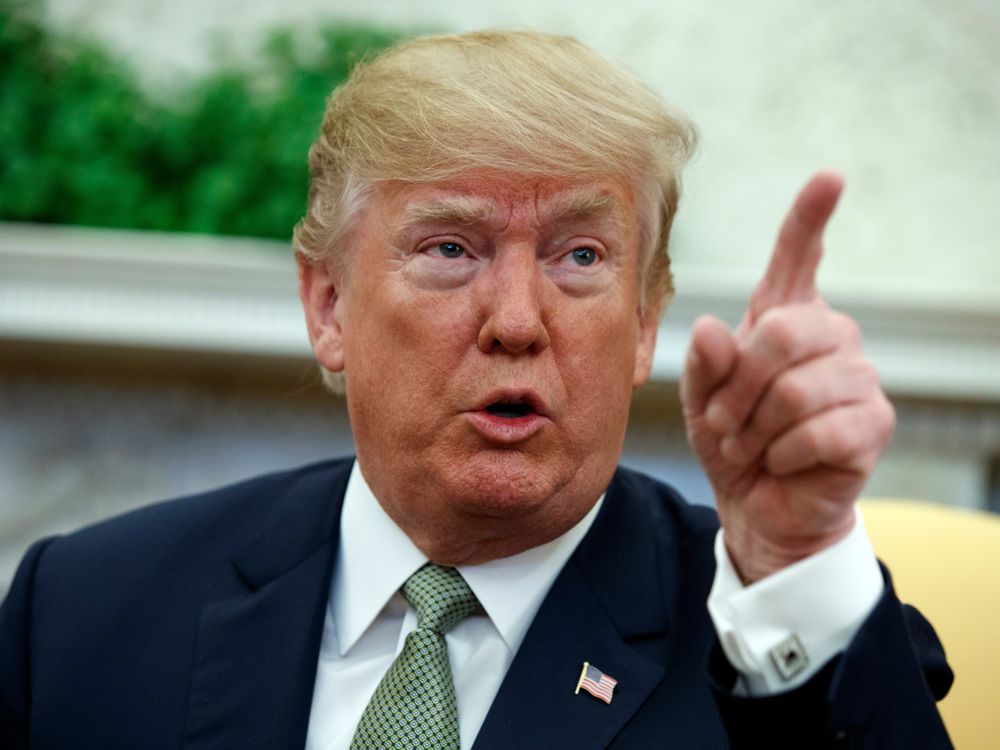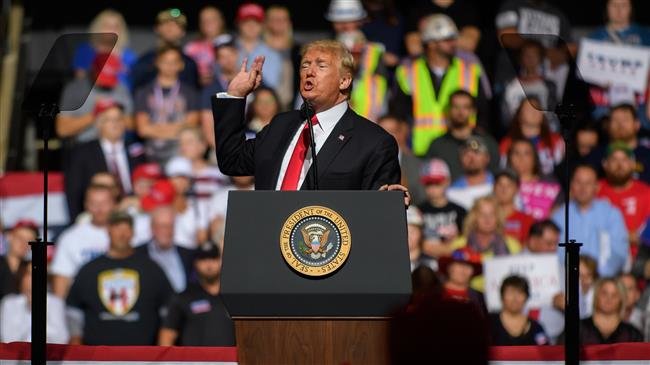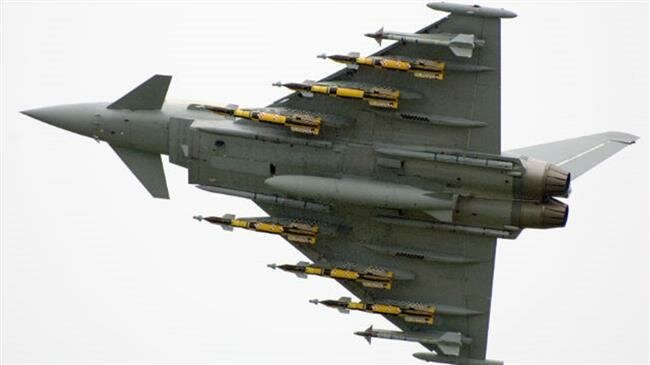US President Donald Trump in multiple letters to Congress said he rejected resolutions that call for prohibiting weapons transfers to Saudi Arabia, the United Arab Emirates (UAE) and several other countries.
Publish dateThursday 25 July 2019 - 22:14
Story Code : 188980
In June, Congress passed several resolutions to block the Trump administration from executing pending arms sales to Saudi Arabia.
“I am returning herewith without my approval S.J. Res. 38, a joint resolution that would prohibit the issuance of export licenses for the proposed transfer of defense articles, defense services, and technical data to support the manufacture of the Aurora Fuzing System for the Paveway IV Precision Guided Bomb Program in regard to the Kingdom of Saudi Arabia and the United Kingdom of Great Britain and Northern Ireland. This resolution would weaken America’s global competitiveness and damage the important relationships we share with our allies and partners,” Trump said in a letter to the US Senate on Wednesday.
Trump rejected two other resolutions in separate letters, with more likely to come, which prohibited transferring laser-guided and precisions munitions to the UAE among other countries in Europe.
The US president in the veto messages struck back at critics claiming the munitions sales to the Saudis end up being used to wound and kill civilians in Yemen.
“By undermining bilateral relationships of the United States and impeding our ability to support key partners at a critical time, the joint resolution would harm – not help – efforts to end the war on Yemen. And without precision-guided munitions, more – not fewer – civilians are likely to become casualties of the conflict,” Trump said.
The president argued that restricting the ability of US partners to produce and purchase precision-guided munitions “would likely prolong the conflict in Yemen and deepen the suffering it causes.”
Trump and other members of his cabinet have publicly opposed ending military support for the war in Yemen because it might jeopardize US arms sales to Saudi Arabia and its Gulf state allies.
Many US lawmakers have said the State Department decision to authorize military aid to the Saudi-led coalition is illegal given the ban against providing such assistance to states with poor human rights records.
A UN human rights report released last year attributed most of the 16,000 civilian deaths in Yemen to Saudi-led coalition airstrikes on targets such as hospitals, schools and open-air markets. The report said that all parties to the conflict are likely responsible for war crimes.
Yemen has been since March 2015 under brutal aggression by Saudi-led coalition, in a bid to restore control to fugitive president Abd Rabbu Mansour Hadi who is Riyadh’s ally.
Tens of thousands of people have been killed and injured in the strikes launched by the coalition, with the vast majority of them are civilians.
The coalition, which includes in addition to Saudi Arabia and UAE: Bahrain, Egypt, Morocco, Jordan, Sudan and Kuwait, has been also imposing a harsh blockade against Yemenis.
“I am returning herewith without my approval S.J. Res. 38, a joint resolution that would prohibit the issuance of export licenses for the proposed transfer of defense articles, defense services, and technical data to support the manufacture of the Aurora Fuzing System for the Paveway IV Precision Guided Bomb Program in regard to the Kingdom of Saudi Arabia and the United Kingdom of Great Britain and Northern Ireland. This resolution would weaken America’s global competitiveness and damage the important relationships we share with our allies and partners,” Trump said in a letter to the US Senate on Wednesday.
Trump rejected two other resolutions in separate letters, with more likely to come, which prohibited transferring laser-guided and precisions munitions to the UAE among other countries in Europe.
The US president in the veto messages struck back at critics claiming the munitions sales to the Saudis end up being used to wound and kill civilians in Yemen.
“By undermining bilateral relationships of the United States and impeding our ability to support key partners at a critical time, the joint resolution would harm – not help – efforts to end the war on Yemen. And without precision-guided munitions, more – not fewer – civilians are likely to become casualties of the conflict,” Trump said.
The president argued that restricting the ability of US partners to produce and purchase precision-guided munitions “would likely prolong the conflict in Yemen and deepen the suffering it causes.”
Trump and other members of his cabinet have publicly opposed ending military support for the war in Yemen because it might jeopardize US arms sales to Saudi Arabia and its Gulf state allies.
Many US lawmakers have said the State Department decision to authorize military aid to the Saudi-led coalition is illegal given the ban against providing such assistance to states with poor human rights records.
A UN human rights report released last year attributed most of the 16,000 civilian deaths in Yemen to Saudi-led coalition airstrikes on targets such as hospitals, schools and open-air markets. The report said that all parties to the conflict are likely responsible for war crimes.
Yemen has been since March 2015 under brutal aggression by Saudi-led coalition, in a bid to restore control to fugitive president Abd Rabbu Mansour Hadi who is Riyadh’s ally.
Tens of thousands of people have been killed and injured in the strikes launched by the coalition, with the vast majority of them are civilians.
The coalition, which includes in addition to Saudi Arabia and UAE: Bahrain, Egypt, Morocco, Jordan, Sudan and Kuwait, has been also imposing a harsh blockade against Yemenis.
avapress.net/vdcdjj0fzyt0jn6.em2y.html
Tags
Top hits












